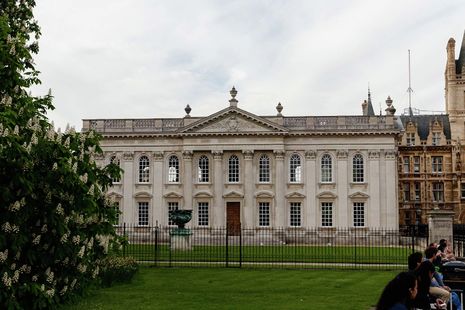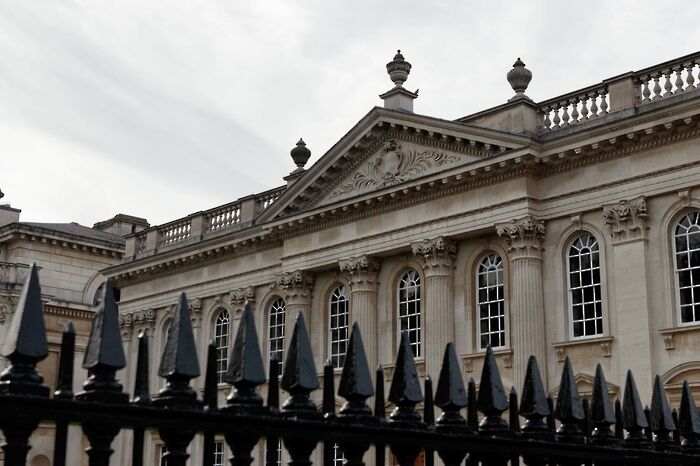Legacies of Enslavement Advisory Group publish initial report
The report outlines a ‘plan of action’ and ‘initial recommendations’

The Cambridge Legacies of Enslavement Advisory Group published their initial report today (15/05) which outlines recommendations for how the University can understand and respond to their historic links with the slave trade.
The report states that ‘Cambridge…benefited both directly and indirectly from enslavement, the slave trade, and imperialism more broadly, so an understanding of that involvement should be central to the University’s efforts to address some of the structural inequalities that are a legacy of enslavement, in particular around the continued impact of racism in our own community.’
Although no evidence was published today, it made three main proposals for how the investigation can be carried out effectively.
The first proposition was that ‘active support be provided for a series of events – including forums, talks, seminars, workshops, exhibits – within the Collegiate University during the academic years 2020–21 and 2021–22.’
This proposal aims to both ‘provide spaces and opportunities for students and staff to explore, challenge, and debate courses of action that can follow from the Inquiry’ and ‘to provide a means by which communities from beyond the University that have been damaged by enslavement and its legacies could be brought in and their voices heard within the University setting.’
In what may indicate the Group’s future recommendations, today's report suggested that ‘themes of acknowledgement and reparative justice were ‘central’ to the objectives of this first proposition.
The second proposal requests support ‘to include the theme of legacies of enslavement’ in an exhibition planned for the Fitzwilliam Museum in summer 2022. The report proposed that ‘this would be an appropriate and helpful way of emphasising the University’s commitment to publicly acknowledging the issues that we are investigating.’
The final recommendation requests for ‘an international conference in Cambridge to explore broadly the legacies of enslavement in the Cambridge context’ which would coincide with the completion of the inquiry ‘towards the end of 2022.’
Today’s report suggested that the final report would be published in 2022 but suggested that ‘the two-year Inquiry must be only the beginning of a long-term endeavour of research into enslavement and its legacies.’
The advisory group was established by Vice-Chancellor Stephen Toope in early 2019 and attracted national attention.
The Enslavement Advisory Group only investigates evidence of slavery in the University, not those held by Colleges. However, the report notes that “a number of Colleges have already taken the decision to explore their own historical links to enslavement, whilst students across the Collegiate University have been very active in promoting such work”. The publication of the University report follows a report published by Jesus in Summer 2019 as well as student-led research at King’s and St Catharine’s.
Other colleges – including Pembroke, Queens’, Corpus Christi and Downing – have also established a variety of measures to assist research into the University’s relationship with slavery.
Two Research Fellows – Dr Sabine Cadeau and Nicolas Bell Romer – will undertake much of the research for the Enslavement inquiry
Their research will focus on ‘the ways in which the University may have been involved financially and otherwise in the slave trade or other historical forms of coerced labour connected to colonialism as well as the University’s contribution to knowledge that may have supported the validation and dissemination of racialized and racist social structures and beliefs, including how those may continue into the present’.
 News / Report suggests Cambridge the hardest place to get a first in the country23 January 2026
News / Report suggests Cambridge the hardest place to get a first in the country23 January 2026 News / Students condemn ‘insidious’ Israel trip23 January 2026
News / Students condemn ‘insidious’ Israel trip23 January 2026 News / Cambridge ranks in the top ten for every subject area in 202623 January 2026
News / Cambridge ranks in the top ten for every subject area in 202623 January 2026 News / Uni denounced for bypassing ‘democratic structures’23 January 2026
News / Uni denounced for bypassing ‘democratic structures’23 January 2026 Comment / Cambridge has already become complacent on class23 January 2026
Comment / Cambridge has already become complacent on class23 January 2026









